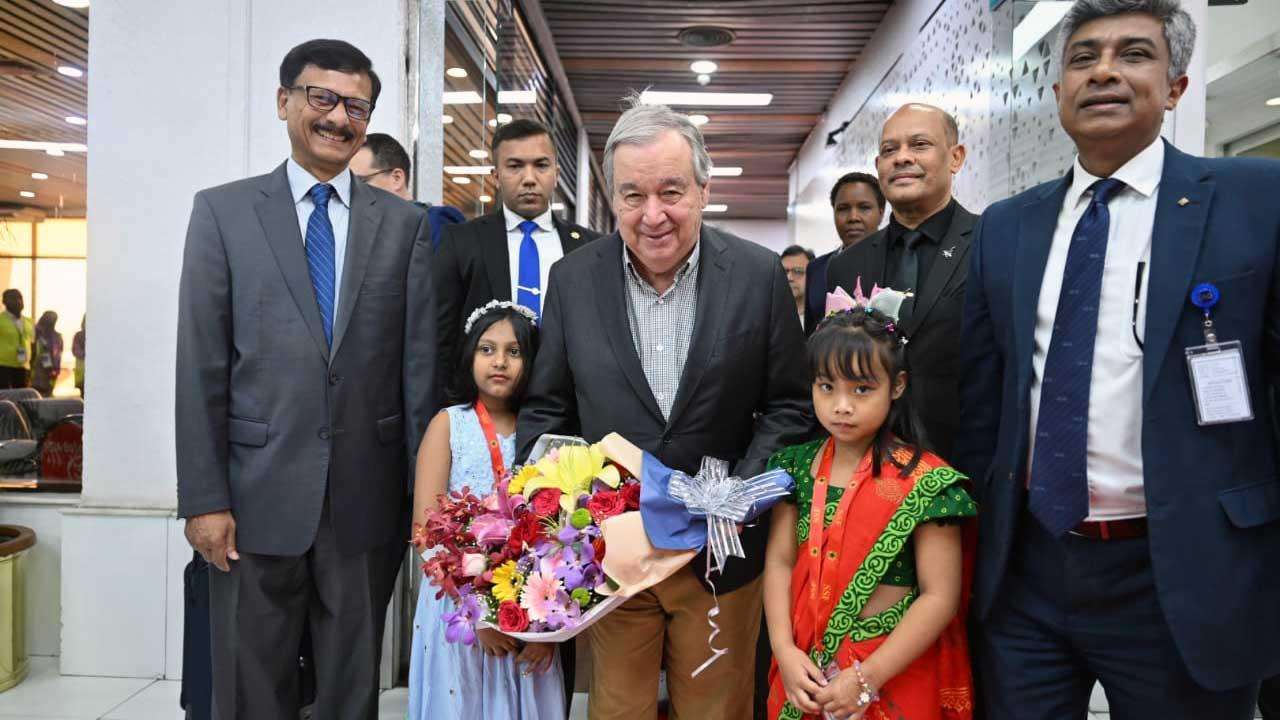United Nations Secretary-General António Guterres has arrived in Bangladesh for a four-day visit to assess the conditions of over one million Rohingya refugees, as concerns mount over potential aid cuts following the U.S. decision to shut down USAID operations.
Guterres was welcomed at Dhaka’s main airport on Thursday by Bangladesh’s foreign affairs adviser, Touhid Hossain. His visit is seen as crucial, especially after warnings from the World Food Program (WFP) about a significant funding shortfall that could force reductions in food rations for refugees in Cox’s Bazar starting next month.
A recent WFP letter indicated that without securing $81 million in funds—$15 million of which is needed for April—rations could drop from $12.50 to just $6 per month per person.
Amnesty International has called on the international community to act swiftly, warning that the funding shortfall will exacerbate the already dire conditions in the camps. “The Rohingya community in Cox’s Bazar has little alternative but to rely on WFP aid,” said Smriti Singh, Amnesty’s regional director for South Asia, emphasizing that Bangladesh’s government restricts refugees from working outside the camps.
Guterres is set to visit Cox’s Bazar on Friday with Bangladesh’s interim leader, Muhammad Yunus. On Saturday, they will hold talks in Dhaka, after which they will jointly address the media.
The U.S. has historically been the largest donor to Bangladesh’s Rohingya humanitarian response, contributing nearly $300 million in 2024 alone. However, with USAID operations now closed, concerns are growing over the sustainability of aid.
Bangladesh’s interim government has assured that funding for Rohingya refugees will continue despite the end of USAID’s payments. Officials maintain that repatriation to Myanmar remains the ultimate solution, but ongoing political and diplomatic challenges make the future of the Rohingya uncertain.
Guterres’ visit is expected to reinvigorate global attention on the crisis and push for renewed financial commitments to prevent worsening conditions in the refugee camps.
_8.jpg)
_5.jpg)
_8.jpg)





.svg)
